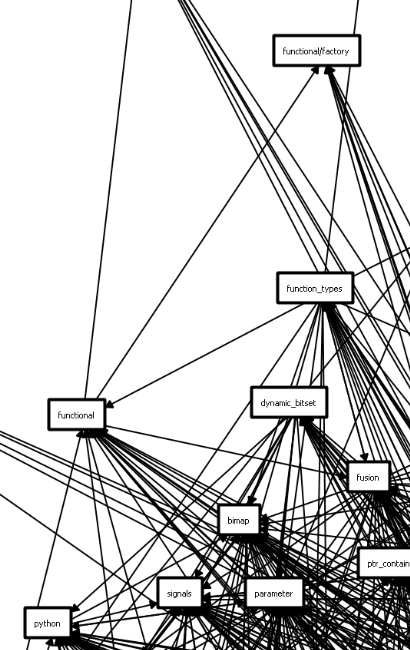Quick Q: Why do I have to write 'mutable' on a lambda? -- StackOverflow
Inquiring minds want to know:
Why does C++0x's lambda require “mutable” keyword for capture-by-value, by default?
Short example:
#include <iostream> int main() { int n; [&](){n = 10;}(); // OK [=]() mutable {n = 20;}(); // OK // [=](){n = 10;}(); // Error: a by-value capture cannot be modified in a non-mutable lambda std::cout << n << "\n"; // "10" }The question: Why do we need the
mutablekeyword? It's quite different from traditional parameter passing to named functions. What's the rationale behind?I was under the impression that the whole point of capture-by-value is to allow the user to change the temporary -- otherwise I'm almost always better off using capture-by-reference, aren't I?
Any enlightenments?
(I'm using MSVC2010 by the way. AFAIK this should be standard)

 This is a pretty cool little project:
This is a pretty cool little project: